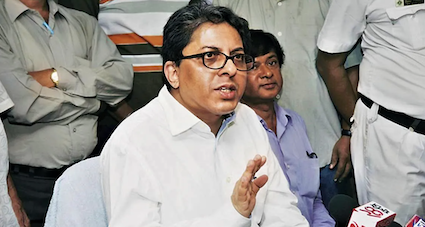Alapan Bandyopadhyay, former West Bengal chief secretary, received a legal setback after the Supreme Court set aside a Calcutta High Court order which had stopped the transfer of his case from Kolkata to Delhi. He will now have to appear before the Central Administrative Tribunal (CAT) in Delhi, instead of its Kolkata bench.
A Bench of Justices A.M. Khanwilkar and C.T. Ravikumar held that the High court order was “without jurisdiction and hence, it is ab initio void. Accordingly, it is set aside.”
Bandyopadhyay had been issued a show-cause notice for allegedly abstaining from a meeting held by Prime Minister Narendra Modi in Kalaikunda last May to discuss the effects of cyclone ‘Yaas’.
The Centre has then initiated major penalty proceedings against Bandyopadhyay. The latter had then moved the Kolkata bench of the CAT challenging the disciplinary proceedings and approaching Calcutta High Court against transfer of his case from Kolkata to Delhi. He dig et a favourable order.
Quashing the Calcutta High court order, the apex court opined that the HC did not have jurisdiction to set aside the CAT order.
The Supreme Court further said that Calcutta High Court usurped jurisdiction to entertain the Writ Petition of Bandopadhyay “even after taking note of the fact that the Principal Bench of the Tribunal does not lie within its territorial jurisdiction.”
In its verdict, the apex court also noted that the Centre had also raised grievances that the high court made some “harsh or disparaging remarks” in the judgement against the tribunal’s chairman.
Solicitor General Tushar Mehta, for the Centre, had said that “the Calcutta High Court has no jurisdiction over the order passed by the Principal Bench of the Central Administrative Tribunal at Delhi.”
The SC bench observed that the high court had found “undue haste” in the matter of disposal of the plea and that persuaded it to make such scathing observations and remarks in fact, against the principal bench of the tribunal. It said that there was “no exceptional ground to make scathing and disparaging remarks and observations,” against the tribunal “hence, they are liable to be expunged. We do so.”


